|
We are constantly gifted opportunities to recognize, and practice to release, the habit of conceptual thinking.
WHAT IS CONCEPTUAL THINKING? Conceptual thinking is the attachment of thought, with the belief that thought is real. This creates suffering. CESSATION OF SUFFERING. Any attachment of thought creates suffering. However, when awareness is developed, thoughts are no longer held captive by the mind; awareness of attachment is achieved, and the pathway to the cessation of suffering is present. Follow this path and all shall been seen clearly. Development of awareness The development of awareness is gained through the practices of mindfulness, surrender, and gratitude. It is the journey itself that reveals the truth; and therefore the pathway must be walked by each individual in order to arrive at the destination of the cessation of suffering. How? Become familiar with attachment; attachment is found in the realms of desire and aversion, the causes of emotional suffering. There are many tools available to assist one to recognize, and work upon, the release of desire and aversion. Refer here for examples To truly free the Self from all suffering, the practice of Dhutanga will need to be engaged: Dhutanga: The practices that are hard to do. As you develop skills, (by using tailored tools or techniques), the aspirant will often be asked to pause and consider what their practices are aiming toward. If it is to ‘acquire’ freedom from suffering, then practice harder to release the things that are preventing wisdom. Cease seeking for an answer, and use whatever is staring you in the face, to become wiser. Whatever you crave is the object of practice! What can you not let go of? What can you not do without? What can you not surrender? What can you not quit? In truth, there is nothing that cannot be left behind (ultimately we drop the body and leave everything behind). Learning to leave things behind, (non-attachment) while in the body, is the greatest reward you can gift yourself. Do not be in rush; take one step at a time and the journey itself will bring success. ABOUT THE AUTHOR: Having undertaken studies for the past 8 years, and successfully fulfilled the criteria required, Paul is a certified Life Coach, certified Reflexologist, & certified Naturopathic Usui Shiki Ryoho Reiki Therapist, specializing in mindfulness-based practices; He is also a published author of a self-help series of books, and Podcast host of Mindfulness Mondays, currently on (I-tunes & Spotify). Paul offers 1-to-1 in-person services in Virginia USA, as well as Sydney Australia; and Life Coaching services are offered globally through various web platforms. Individually tailored tools and techniques are shared, to enable clients to develop a state of positive emotional awareness and behavior. For Links & more information on Paul PettitClick HERE
2 Comments
Any representation of a thing is not the thing itself.
“I think I am”...are merely words explaining a representation of that which I think I am... and therefore, because it is merely a representation, whatever description that follows is not you. Unpack this further and we will discover that “I am all things at different moments in time and space”. Therefore it stands to reason, if I am all things, I am in fact no certain or specific thing. And to unpack that even further, if I am no specific thing, I am therefore no thing. “I am nobody.” I always have been, and always shall be nobody. Upon realization of this knowledge you will become free from attachment. Period. Once free from attachment, the being is left to enjoy moments of time by witnessing each moment pass by. The moment is merely a moment. It is not a representation of the being, nor is it something in or of itself. It too is nothing; and therefore it too is also a potential something, hence it too is everything (it has the capability to produce moments made up of every thing). Each moment is a nothing, and therefore an everything. Yet, like the thing called me, each moment is neither permanent nor real (it is not real because one moment it exists, and the next it does not. if it does not exist in the next moment, it cannot be classified as ‘real’; it is non-existent. The ultimate answer to who am I? I am Nobody, which is experiencing never ending moments of being a representation of something. A microcosm that is in a constant state of flux. I am THAT which witnesses the macrocosm, which in itself is in a constant state of flux. I am nobody witnessing the potential of everything that is created from the space of nothingness. DEVELOPING AFFECT REGULATION:
Meditation is a vehicle that offers training in Samadhi (concentration). Concentration makes the mind firm and steady, which creates peacefulness of mind. Usually our untrained minds are moving and restless, difficult to control and manage. Such a mind is distracted by the senses, loose and wild, like leaves in the wind. The mind that is trained and controlled will be of immeasurable benefit, offering more blessings than an untrained mind. A trained mind has the ability to witness itself (metacognition) and will willingly adopt positive changes in behavior. However a trained mind alone is still not the answer to emotional freedom. Self-compassion, and the development of self-awareness are also integral parts to developing emotional freedom, the ability to remain regulated during uncomfortable emotions. Mindfulness is the Discovery of Self-Knowledge. The training of the mind can be done many ways, with many different methods. The most useful method, one that can be practiced by all types of people, is mindfulness of breathing. This is where meditation becomes the vehicle for developing affect regulation. I am yet to meet one client who has not benefited from mindfulness and mediation; which is why I am so passionate to share these gifts. ABOUT THE AUTHOR: Paul J Pettit Born in Sydney Australia in 1963. Paul is a practitioner of *Naturopathy, Certified Life Coach, Certified Reflexologist, & Certified Naturopathic Usui Shiki Ryoho Reiki Therapist. He is also a published author of a series of self-help books, and Podcast host of the weekly podcast show Mindfulness Mondays Paul specializes in mindfulness-based practices. * Naturopaths use natural therapies to treat pathology or diseases and dysfunctions. For more information on Paul Pettit - http://www.paulpettit.com Practicing Mindfulness.35 Daily Mindfulness Moments to create calm
Practicing to focus your attention during everyday moments. Bringing your attention into focus throughout the day is what is often referred to as “being in the present moment.” This week, practice bringing your attention into focus, during these everyday moments, starting from Morning through to Evening. Note: You will periodically notice that you have forgotten to bring awareness to the forefront of what you are doing, which is perfectly normal at first, so be patient with yourself as you move through the exercise During these activities: Move deliberately slower Breathe deliberately slower Bring awareness to each individual action, and body part used, while performing the task Perform the task in slow-motion to enable yourself to be mindful of each action, and each moment 1. Waking / stretching 2. Making the bed 3. Brushing your teeth 4. Showering or bathing 5. Washing you hair 6. Shaving & moisturizing 7. Toweling your body 8. Dressing 9. Walking to the kitchen 10. Preparing breakfast 11. Eating breakfast 12. Washing Dishes / stacking the dishwasher 13. Making Tea / Coffee 14. Filling-up a water bottle 15. Walking between rooms 16. Washing hands 17. Vacuuming 18. Reading 19. Using a computer 20. Writing 21. Sitting 22. Shopping 23. Using public transport 24. Waiting for the microwave to finish 25. Brushing your hair 26. Being outdoors 27. Logging-in to check your e-mail 28. Seeing/watching a loved one 29. Talking on the phone 30. Listening to music 31. Sitting down/standing up/bending 32. Beginning/completing an activity/task 33. Eating dinner 34. Showering 35. Getting ready for bed ABOUT THE AUTHOR: Paul J Pettit Born in Sydney Australia in 1963. Paul is a practitioner of *Naturopathy, Certified Life Coach, Certified Reflexologist, & Certified Naturopathic Usui Shiki Ryoho Reiki Therapist. He is also a published author of a series of self-help books, and Podcast host of the weekly podcast show Mindfulness Mondays Paul specializes in mindfulness-based practices. * Naturopaths use natural therapies to treat pathology or diseases and dysfunctions. For more information on Paul Pettit - http://www.paulpettit.com YOU CREATE REALITY!
Are you ever overwhelmed? Anxious? Depressed? Or do you simply want more from life? Whatever is real to you in this moment, pleasant or unpleasant, is real. However, did you know that you are creating it? Every result, in every moment, is created by you. The reason one suffers (or perhaps simply wants more from life) is due to the fact one does not know how to process emotions. When you learn to accept & process every type of emotion, as you experience it, then you will be liberated from suffering, because you will actually get more from life. Guaranteed! How can I guarantee this? How do I know this to be the truth? Because I have achieved it, as have thousands of others who have learnt the practices of mindfulness I teach. Mindfulness is the Discovery of Self-Knowledge. The practices of mindfulness are designed to build continual self-knowledge - {knowledge of Self}. One ceases trying to change their outer world, and those within it, by engaging in the actions of processing one’s inner world, one's own emotions in each present moment. How? Start by embracing self-care. Do this for you. It is through the respect of Self, one develops the skills to impact the outer world in a mindful-manner. You will feel happier, and therefore it stands to reason that those around you will benefit from a 'happier you'. Eastern practices share: ‘when I know myself, I know others. When I control myself, I do not need to control others’. YOU can (and do) create the reality of each present moment, by the manner in which you interact with it. By learning the tools and practices of mindfulness, you begin to create your preferred result in each moment. What are the Practices? Mindfulness practices teach you how to recognize where you are currently going wrong, and how to change the actions that are not giving you the results you seek. Let's start with a common mistake: If something is causing you grief, do you think the discomfort you are experiencing is positive, or negative? In other words do you try to get away from the discomfort? If you answered negative (or you try to get away from discomfort), then you are doing the wrong thing! And this is why your life is not where you want it to be. Discomfort is not negative, it is here to inform you something is amiss, something needs to change. Therefore it is positive. It is here to alert you (like a trusted friend) that something in your life needs to shift. Trying to avoid discomfort through actions of distraction (bad habits) simply creates more issues. However, when you learn how to address discomfort (not avoid it), then you are taking back control. The practices I teach show you how to shed maladaptive behavior (bad habits), by engaging new tools for processing emotions. You start to walk toward discomfort, not away from it. In doing so you begin to shift the results in your life. Your life changes for the better - for you, your family, friends and the universe as whole. Mindfulness practices teach you how to take full control of what you can control (yourself & the results in your life). Do you need to learn mindfulness practices? If you suffer emotionally then the answer is yes. If you want more from life then the answer is yes. Are ‘others’ or ‘your circumstances’ controlling how you feel, and controlling your life’s outcome? Then the answer is yes. You have been relinquishing control for too long, so stop doing the same thing and expecting a different result ...it won't happen 'all by itself'. When you discover that ‘others’ and ‘your circumstances’ do not control your state-of-being (your feelings), the light of awareness will begin to shine. You will want to learn how to release old habits that have not worked, and start new actions that do work. By practicing the art of mindfulness you will change the way you (think), (feel), and (act). Therefore the result of each and every present moment has no option but to align with your preferred outcomes. Recognize the aggregates of Self:
ABOUT THE AUTHOR: Paul J Pettit Born in Sydney Australia in 1963. Paul is a practitioner of *Naturopathy, Certified Life Coach, Certified Reflexologist, & Certified Naturopathic Usui Shiki Ryoho Reiki Therapist. He is also a published author of a series of self-help books, and Podcast host of the weekly podcast show Mindfulness Mondays Paul specializes in mindfulness-based practices. * Naturopaths use natural therapies to treat pathology or diseases and dysfunctions. For more information on Paul Pettit - http://www.paulpettit.com WHAT IS MINDFULNESS AND MEDITATION?
WHY PRACTICE MINDFULNESS AND MEDITATION?
WHERE TO START? Collection One Is designed to assist beginners, & perhaps broaden the level of understanding for intermediates, by using simplicity over complexity toward the practices of Mindfulness & Meditation This collection of practices assists the aspirant to become familiar with the first step toward awakening, and the development of emotional freedom. The First step is the practice of Awareness. By developing awareness of the physical & non-physical Bodies that make-up the thing we call Self, you will begin to shine a light on what is truly taking place each moment of life. During this first step, Awareness of Mindfulness is developed through specific practices of breathing meditations. These meditations create the necessary foundation for deepening concentration and developing insight. They also help us to sustain mindfulness in all situations throughout the day. PRACTICE ONE: DAYS 1-7 Be aware of the in-breath & out-breath. Awareness is the first step. 1.Identify the breath. Say out loud, “breathing-in, I know this to be an in-breath.” “Breathing-out, I know this to be an out-breath.” Practice this until the Self recognizes these to be true & present. Do not be in a rush to move forward onto the next practice; allow time for the Self to recognize how easily the Self can be distracted by thoughts vying for attention, or a desire to move ahead to ‘the next thing.’ For the next 7 days:
If you would like to continue this journey you can join like minded people HERE Surrender
If one is affected by criticism, it is due to the fierce inner-battle of worthiness and the desire to be accepted by others. Viewing criticism as a negative reflection of oneself assumes right & wrong exist permanently; yet the terms right and wrong, or correct/incorrect are assumptions at best; and are relative to a current state of time & space, based upon an accepted belief of the majority within that period. Therefore right & wrong, correct/incorrect, are neither true nor false, they are opinions relative to the present moment with an underlying misbelief that things are permanent. In other words, just because it was accepted as given (correct/incorrect) in the past, does not unequivocally mean it is therefore given as correct/incorrect in the present or future. Impermanence is reality! When one practices mindfulness - becoming open-minded and unattached toward criticism, the desire to be accepted is recognized as futile. One needs only to be aware that Self is the 'witness' (the true Self) of impermanence; and thus one shall seek no praise and fear no retribution. One shall be that which one is in this moment - period. Growth Growth comes from witnessing criticism and praise without attachment. How can the Self grow into the next stage of life? Through the practices of non-attachment ABOUT THE AUTHOR: Paul J Pettit Born in Sydney Australia in 1963. Paul is a practitioner of *naturopathy, certified life coach, certified reflexologist, & certified naturopathic usui shiki ryoho reiki therapist. He is also a published author of a self-help series of books, and Podcast host of Mindfulness Mondays Paul specializes in mindfulness-based practices. * Naturopaths use natural therapies to treat pathology or diseases and dysfunctions. For more information on Paul Pettit - http://www.paulpettit.com The kingdom
There exists a kingdom that contains nothing impermanent. The ruler of this kingdom has access to unlimited knowledge, and therefore lives in bliss. There is a minister who serves the ruler by creating everything the ruler desires, and whose existence relies solely on this duty; without this duty the minister would not exist. The role of Self. The role of Self is to discover the kingdom of the ruler, and in doing so one will instantly acquire the entire state. To discover the kingdom one must see the ruler; yet one cannot see the ruler (who is always in plain sight) unless one conquers the minister who serves the ruler. However, the minister cannot be conquered until one sees the ruler - therein we have the conundrum. The solution. In order to solve this mystery one must accomplish both tasks at the same time. Conquer the minister & see the ruler! At that very moment one will instantly acquire the entire estate. When one recognizes each piece, success is guaranteed; the puzzle is no longer a puzzle, it is the answer.
You create reality, based on your thoughts alone. Gluttony
Gluttony is the act of keeping more to yourself than you could ever consume. Sadly such robbers take pride in their actions; yet these actions are thieving from their loved ones, family, and ultimately themselves. Who is the thief, and who is the victim? In building the castle, filling it with treasures to the level of over-abundance and hoarding your wealth behind fortified walls, ramparts and moat, can you not see the prison in which you place yourself? The levels of unquenchable thirst and fathomless desire are robbing you from the gifts of experiencing the blissful discomforts associated with true freedom. Your suffering is self-perpetuated, by actions motivated from fear. The clutches created by greed are stealing from you the priceless practices of relinquishment – designed to release you from the fetters of suffering. Your court (body) shall be well kept - fed physically, and adorned with elegant robes, serving only neglect toward that which wears them; and the fields (emotional freedom) shall be ill cultivated, and their produce diminished over time. Slowly but surely the thief of gluttony is robbing you in your slumber of ignorance. Wake up from this sleep and you shall witness all with the clarity of wisdom. Wake up from this sleep and release the desire for certainty in a universe of uncertainty, and then you shall find the blissful rewards in living without fear. ABOUT THE AUTHOR: Paul J Pettit Born in Sydney Australia in 1963. Paul is a practitioner of *naturopathy, certified life coach, certified reflexologist, & certified naturopathic usui shiki ryoho reiki therapist. He is also a published author of a self-help series of books, and Podcast host of Mindfulness Mondays Paul specializes in mindfulness-based practices. * Naturopaths use natural therapies to treat pathology or diseases and dysfunctions. For more information on Paul Pettit - http://www.paulpettit.com |
Archives
June 2024
Categories
|

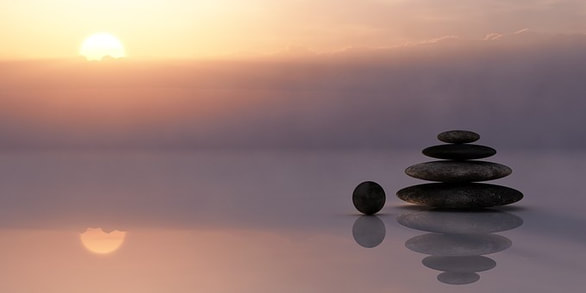

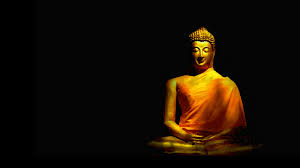
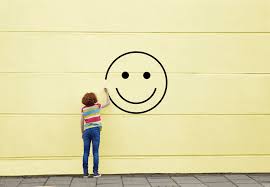
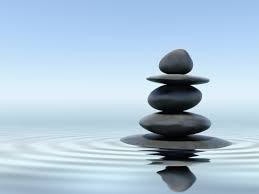
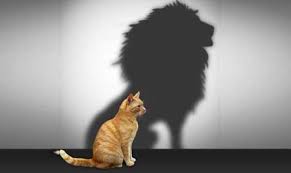



 RSS Feed
RSS Feed